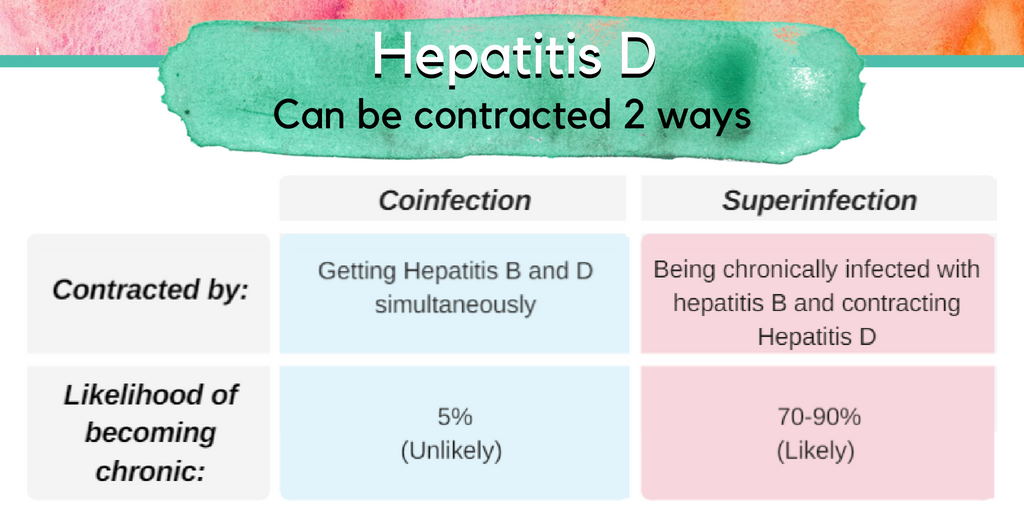 By Sierra Pellechio, Hepatitis Delta Connect Coordinator
By Sierra Pellechio, Hepatitis Delta Connect Coordinator
Hepatitis delta is an aggressive form of hepatitis that can only exist alongside hepatitis B. This means that all hepatitis B patients are at risk for hepatitis delta, but so are people who have not received the hepatitis B vaccination series.
If contracted, 70-90% of people with chronic hepatitis B will go on to also develop a chronic hepatitis delta infection – called a “superinfection”. Approximately 70% of these cases will progress to cirrhosis (liver scarring), compared to 15-30% of those infected only with the hepatitis B virus.
Due to the likelihood of liver complications, hepatitis B patients should be aware of potential exposures to hepatitis delta. The virus is spread the same way as hepatitis B, through direct blood-to-blood contact and unprotected sex with an infected person. It is important to be aware that blood contact could also occur by exposure to unsafe blood transfusions, unsterile medical or dental equipment, and the sharing of razors or toothbrushes with an infected person due to the possibility of infected blood entering the body.
People who are not infected with hepatitis B may be at risk for “coinfection”, when someone contracts hepatitis B and delta simultaneously during one exposure. In these cases, greater than 90% of adults will clear both infections and develop protective antibodies. While a co-infection generally resolves spontaneously after about 6 months, it can sometimes result in a life-threatening or fatal liver failure.
The good news is that the hepatitis B vaccine series can prevent both viruses in people who are not already infected. Once completed, the vaccine can provide a lifetime of protection!
For more information about hepatitis B/delta coinfection, please visit www.hepdconnect.org or email us at connect@hepdconnect.org.

